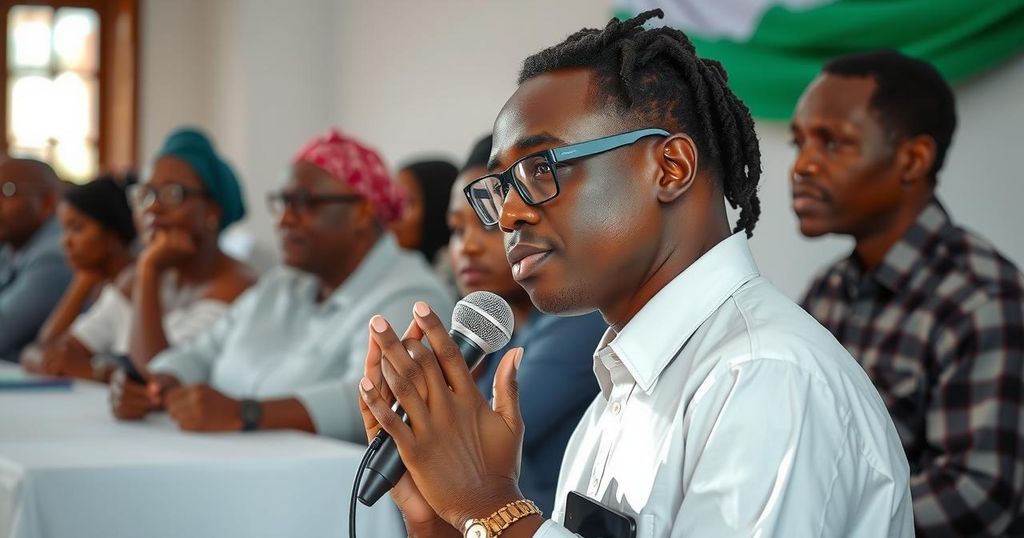Ghana’s 2024 General Election: Insights and Lessons for Nigeria

On December 7, 2024, Ghana elected John Dramani Mahama as president with a voter turnout of 60.9%. His opponent, Dr. Mahamudu Bawumia, graciously conceded. The election saw the historic election of Prof. Naana Jane Opoku-Agyemang as the first female Vice President. Despite successes, the process faced challenges including violence and allegations of rigging. Ghana and Nigeria share political similarities, providing important lessons for Nigeria’s electoral reforms.
On December 7, 2024, Ghana conducted its ninth general election since the establishment of its Fourth Republic in 1992. The Electoral Commission Chairperson, Mrs. Jean Mensa, announced the victory of John Dramani Mahama from the National Democratic Congress, who garnered 6,328,397 votes, representing 56.55%. The outgoing Vice President and New Patriotic Party (NPP) candidate, Dr. Mahamudu Bawumia, received 4,657,304 votes, accounting for 41.61%. Voter turnout was noted at 60.9%. Dr. Bawumia’s immediate concession call to Mahama exemplified political maturity and significantly reduced electoral tensions.
The election was notable not only for Mahama’s return to power after two prior defeats but also for the election of Ghana’s first female Vice President, Prof. Naana Jane Opoku-Agyemang, a former Minister of Education. Historically, no party in Ghana has won consecutive elections since 1992, showcasing a trend reflected in several recent international electoral outcomes, particularly as rising living costs, inflation, and unemployment affect voter sentiment.
Although the elections were generally peaceful, they were marred by incidents of chaos, including riots and allegations of attempted rigging, resulting in three fatalities and numerous injuries. Police made multiple arrests for various election-related offenses, highlighting imperfections within the electoral process despite Ghana’s reputation as a beacon of democracy in a region with a history of coups.
Ghana and Nigeria share important similarities in political structure and historical context, having both navigated colonial legacies and military governance. Both nations operate under multiparty democracies, with dominant parties and electoral processes that exhibit comparable characteristics. However, Ghana’s provisions for independent candidacy, proxy voting, and a singular electoral commission present notable distinctions from Nigeria’s bicameral system and dual electoral management bodies.
Lessons gleaned from Ghana’s electoral practices could benefit Nigeria significantly, particularly around fostering a civic political culture, encouraging early voting, supporting independent candidacies, and achieving greater female representation in political offices. As Nigeria prepares for future elections, it would be prudent to consider reforms inspired by Ghana’s electoral experience.
Ghana has held nine general elections since establishing its Fourth Republic in 1992, marked by a commitment to democratic principles despite occasional upheavals. The recent elections, while largely successful, reflected underlying electoral tensions common in West African democracies. Comparatively, Nigeria’s political landscape mirrors aspects of Ghana’s, though significant differences in electoral administration and practices may inhibit Nigeria’s democratic maturity. Observers note that Ghana’s electoral processes afford valuable lessons for Nigeria as it faces its own political challenges.
The 2024 general election in Ghana represents a pivotal moment in the nation’s democratic journey, underscoring not only the resilience of its electoral system but also the importance of political accountability and civic engagement. As Nigeria looks to improve its electoral integrity and efficacy, it should heed the lessons from Ghana’s recent experience, particularly in fostering political diversity, inclusivity, and transparency in the electoral process.
Original Source: punchng.com





